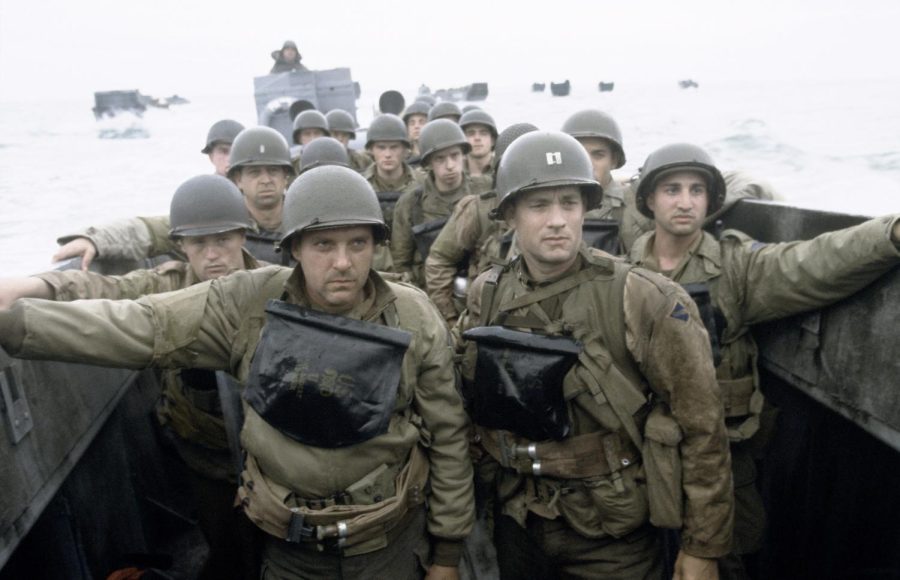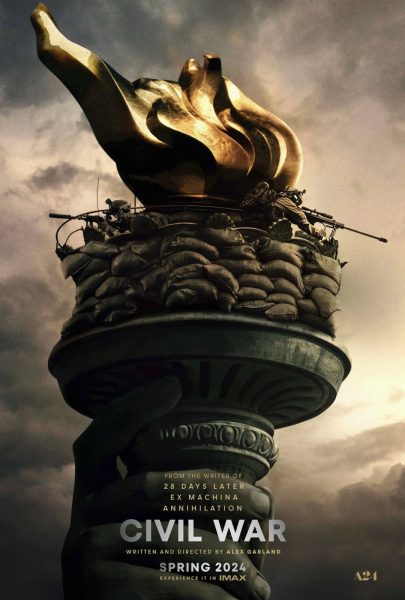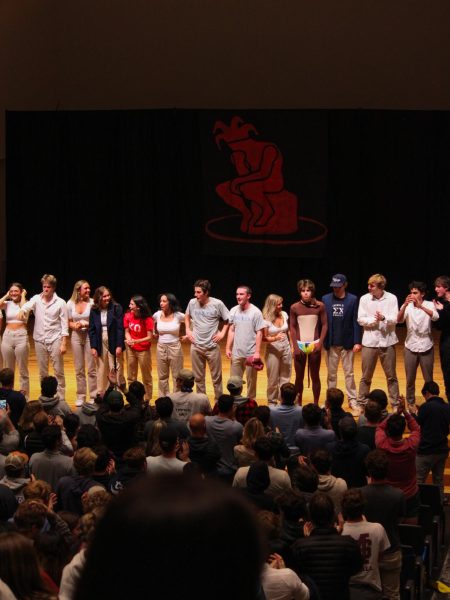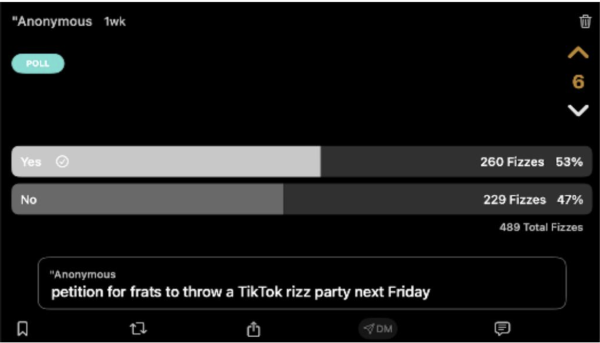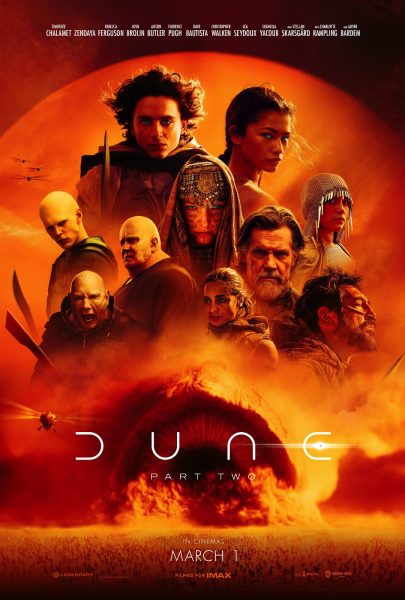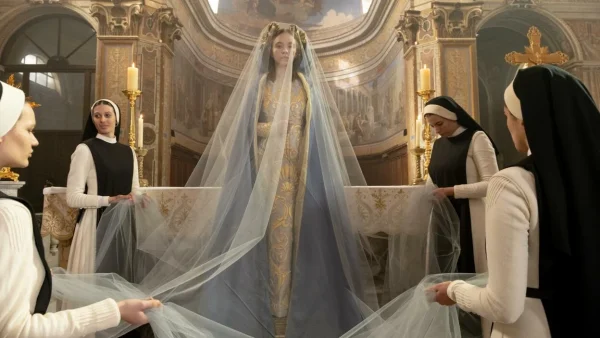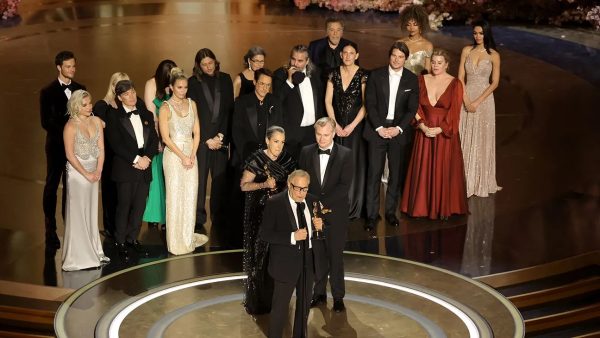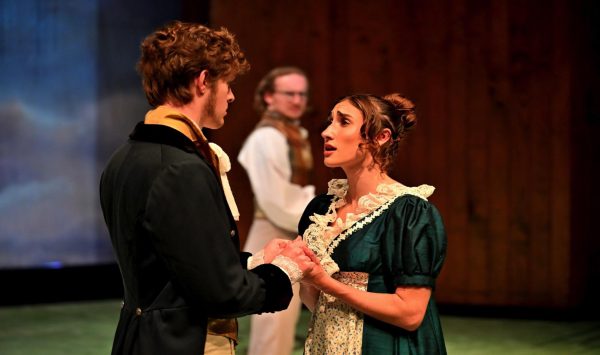War movies impact Americans’ perspectives
Digital media shapes narratives regarding the tragedy of war
“Saving Private Ryan” (2013) depicts the atrocities of war.
March 29, 2022
Five weeks ago, we woke up to a different world — a world where the Russian government was mobilizing its troops against Ukraine. A military conflict, a refugee crisis and an international threat of this scale had not been seen by this many people living in the world today. Our world just came one step closer to poking a beast that hadn’t been awoken for 77 years — World War. But what have we learned already?
Since the beginning of the semester, I’ve probably watched more war movies than you’ve seen in the last few years of your life. I’ve become absorbed in this genre for a number of reasons. I’m currently taking a course about European history, and we’ve just arrived at the World Wars. I was really anticipating the course because my pre-college curriculum had somehow managed to skip this topic every year since seventh grade, and now we’re facing the possibility of a large-scale war. But as I’ve been sitting here in my dorm at three in the morning, I began to ponder how our attitudes towards war have been shaped over time.
Historically, the media has influenced how people view war. Before the 20th century, the act of going to war and fighting for one’s country was commonly seen as a glorious and even romantic deed. Theater productions and propaganda portrayed soldiers as fighting with honor and often winning due to their nobleness. Even if they died, they died with satisfaction. World War I was quick to shatter that notion. Streets that were filled with young men who were proud to enlist themselves in the military were soon desolate.
These young men often found themselves not on bright battlefields where they could display their most righteous valor but in hellish landscapes where they focused on how to survive until the next day. This served as a harsh wake-up call to anyone after the war, including veteran and author of “All Quiet on the Western Front”, Erich Maria Remarque. Not only do I admire this book, but its 1930 film adaptation holds up today as a faithful rendition of the source material with its themes of tragic youth and illusory nationalism.
Cinema arose on the heels of this book, World War II and a subsequent outpouring of new stories about the wars. Despite these war movies trying to be realistic, the medium in which their stories were presented was still largely designed for entertainment, so war continued to be a sensationalized topic. Perhaps this was a particular attitude within the United States because we had fought on the winning side of both major wars. We seemed invincible … but we weren’t.
Later movies such as “Schindler’s List” and “Saving Private Ryan” were at times met with horror and disgust by audiences due to their extremely violent content, but survivors and veterans of the events portrayed in the films appreciated the visible accuracy of their experiences. These facts of their lives, as unfortunate as they were, had still been waiting to be fully accepted by their society.
Another major theme that was gaining popularity towards the end of the 20th century was pacifism, as seen in “Grave of the Fireflies” and “The Iron Giant”. The creators of these movies shifted their focus from the battlefields to the everyday communities that were affected by war. It was made evident that the domestic front of war is just as important to consider and that the price of war may be too devastating to pay because of this.
And now here we are in the 21st century — a time of many new changes. With the rise of the internet came the rise of information and misinformation. This era has also seen the expansion of consumerism into virtual domains largely through the use of social media. It is true that people act differently on the internet than they do in real life, but what they see online still shapes how they think. Any topic can become disfigured in importance and meaning depending on how it’s treated online — and war is no exception. As a member of Gen Z, I’ll admit that we have a bad habit of making jokes about topics that should be taken seriously. In both the events of a U.S. drone strike in Baghdad and Putin’s order of a full-scale invasion of Ukraine, I had encountered numerous memes and jokes about the start of World War III.
We are becoming increasingly disconnected from the gruesome losses our world suffered some time ago. Although this is not necessarily our fault, it is still our duty as a future generation of adults to understand the gravity and consequences of these historical events. There are other, better ways than social media to learn about the wars that ended the lives of many and transformed the lives of so many more.
We can take history courses, read books or watch war films that get it right. Although many movies from the past decade tend to emphasize the spectacle, movies such as “War Horse”, “1917”, “Dunkirk” and even “Jojo Rabbit” still manage to capture important messages about the values of life, humanity and perseverance. I hope that we will be able to take in all aspects of these stories of war — from the ugliest moments to the brightest acts of compassion — and learn to mature into the leaders that our fragile world needs. So — for everyone’s sake — please let the sleeping beast lie.


